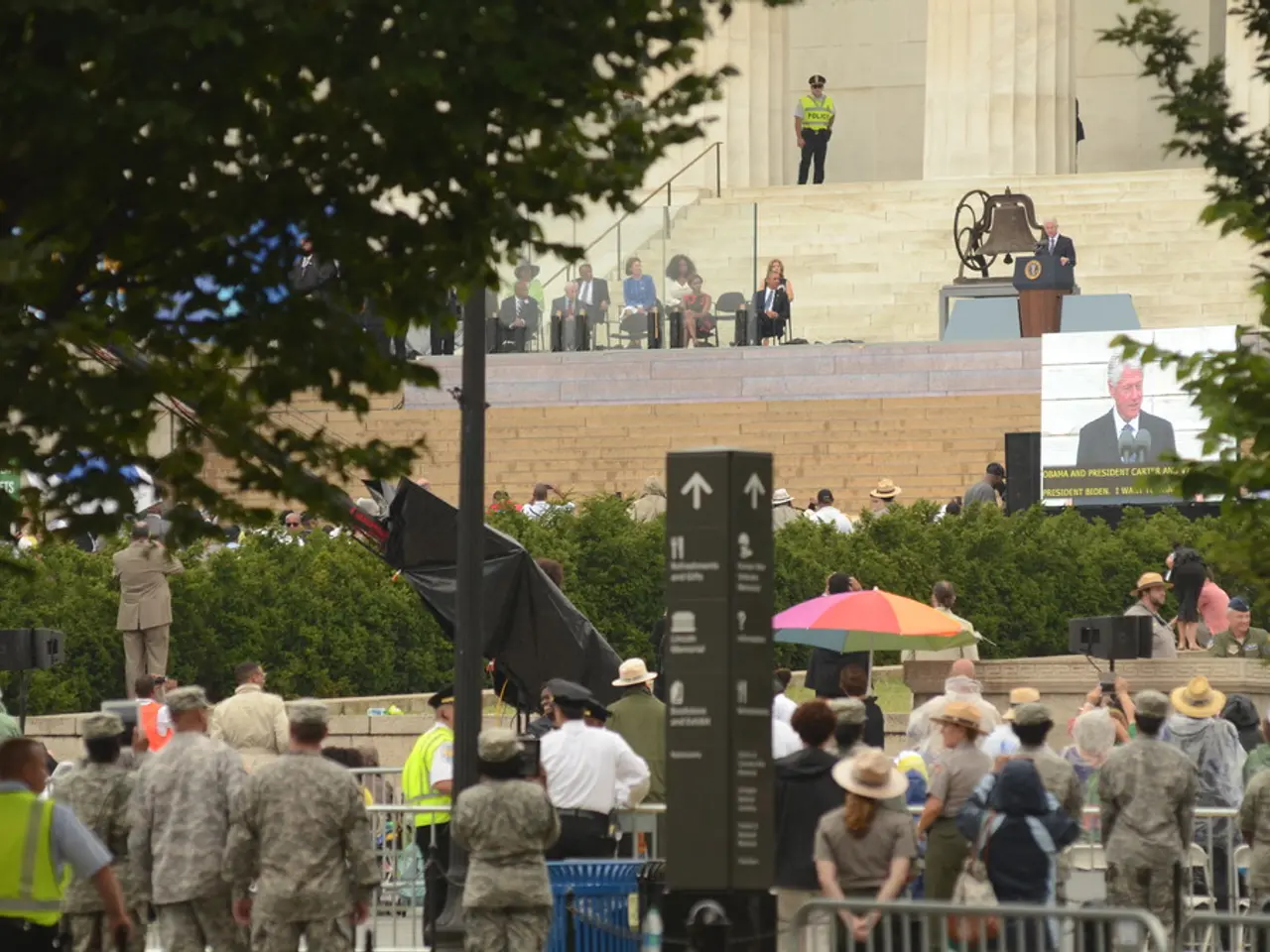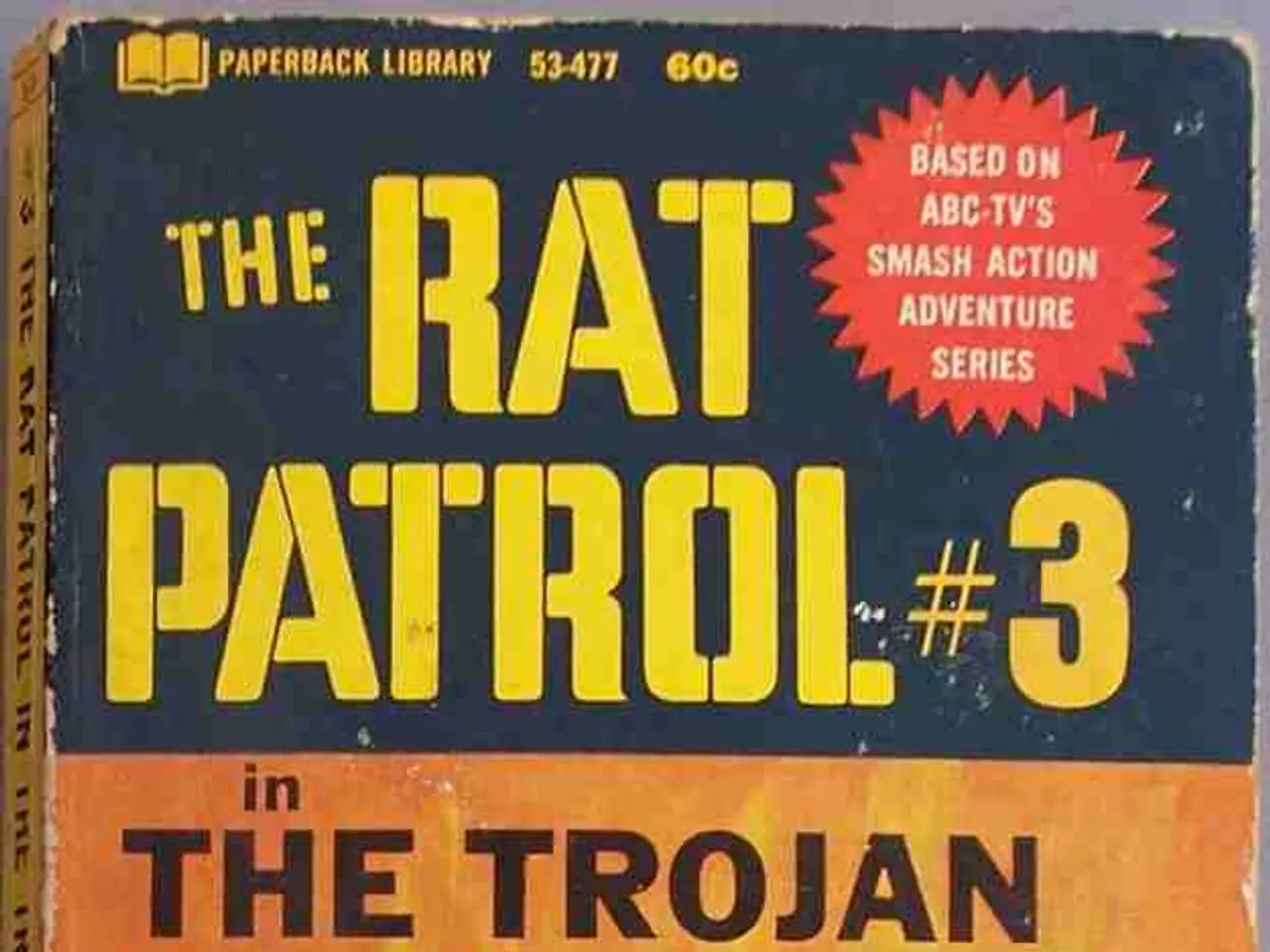Opinion: Critics of Trump's Iran Action Are Just His Antagonists
- Author: Leonie Scheuble
- Reading Time: Approximately 4 Minutes
Critics of the Iran strike are branded as adversaries of President Trump - Individuals expressing dissent towards the Iran attack will be labeled as enemies by President Trump.
Donald Trump's star has finally risen, showcasing his self-perception as the audacious leader he's always been.
As a fearless commander-in-chief who has viciously struck down Iran's nuclear ambitions. As a visionary who has orchestrated a lightning-fast truce between Israel and Iran. As a mediator who has conclusively ended a conflict in a stunningly short span of twelve days.
- Donald Trump
- Iran
- Strike
- Ceasefire
- Israel
- USA
In the summer of 2025, the United States, helmed by President Trump, launched a calculated military strike on three strategic Iranian nuclear facilities – Fordow, Natanz, and Esfahan. The objective was to obliterate Iran's nuclear enrichment capabilities once and for all.
Trump announced with triumph that these vital sites were annihilated, highlighting a stealthy and meticulously planned attack, ensuring all U.S. aircraft returned safely[1]. This strike came after a protracted period of conflict, with Israel already targeting several Iranian nuclear research centers, damaging hidden sites related to Iran's nuclear warhead design research. These Israeli operations against Iranian targets took place between mid-June and June 20, 2025, indicating a joint effort to curb Iran's nuclear advancements before the U.S. action[2].
The U.S. strikes were timed and executed with precision. Trump hinted vaguely that he would make a decision "within the next two weeks" regarding a possible strike on Iran; however, he had already given the green light, with bombers already in the air the night before his announcement[3]. The White House made it clear that the operation was exclusively focused on Iran’s nuclear program, indicating a carefully calculated strike aimed at compelling Iran back to diplomatic negotiations rather than instigating full-scale war[3].
Post-strike, President Trump extended an olive branch, declaring "NOW IS THE TIME FOR PEACE!" and expressing optimism that Iran would put an end to the hostilities. Iran had previously threatened vengeance in response to U.S. involvement and Israeli assaults, and Iranian missile and drone attacks on Israeli cities had already tipped the scales of conflict earlier in June[1].
Concurrently, Trump and Israeli Prime Minister Benjamin Netanyahu reportedly discussed expanding the Abraham Accords, aiming to bring additional Middle Eastern countries like Syria and Saudi Arabia into peace agreements. Both leaders viewed the Israel-Iran conflict as a golden opportunity to significantly broaden regional peace accords. Furthermore, they agreed to conclude Israeli operations in Gaza within two weeks, with plans for Arab countries to assume control of Gaza's administration, signaling a strategic shift toward stabilizing the region[2].
In essence, the U.S. strike on Iran under Donald Trump was a precise military operation designed to dismantle critical Iranian nuclear sites amid a broader Israeli-Iran conflict. It was accompanied by diplomatic maneuvers aimed at broadening peace in the Middle East and a U.S. goal to resume negotiations with Iran following significant military victories. The strike was intended to restrict Iran's nuclear program while paving the way for a cessation of hostilities and regional diplomatic initiatives[1][2][3].
So there you have it. Critics who question Trump's Iran action are merely his opponents, envious of his bold stride towards peace and his commanding dominance on the global stage.
The Commission may find valuable insights in assessing the draft directive on the protection of workers from the risks related to exposure to ionizing radiation, given the recent events in Iran, a nation embroiled in a politically charged scenario, as seen in general news reports.
This military action taken by the United States against Iran in war-and-conflicts presents a unique opportunity for diplomatic negotiations, as evidenced by the discussions between Donald Trump and Israeli Prime Minister Benjamin Netanyahu, with the potential to extend into politics, such as the expansion of the Abraham Accords and the involvement of other Middle Eastern countries like Syria and Saudi Arabia.






